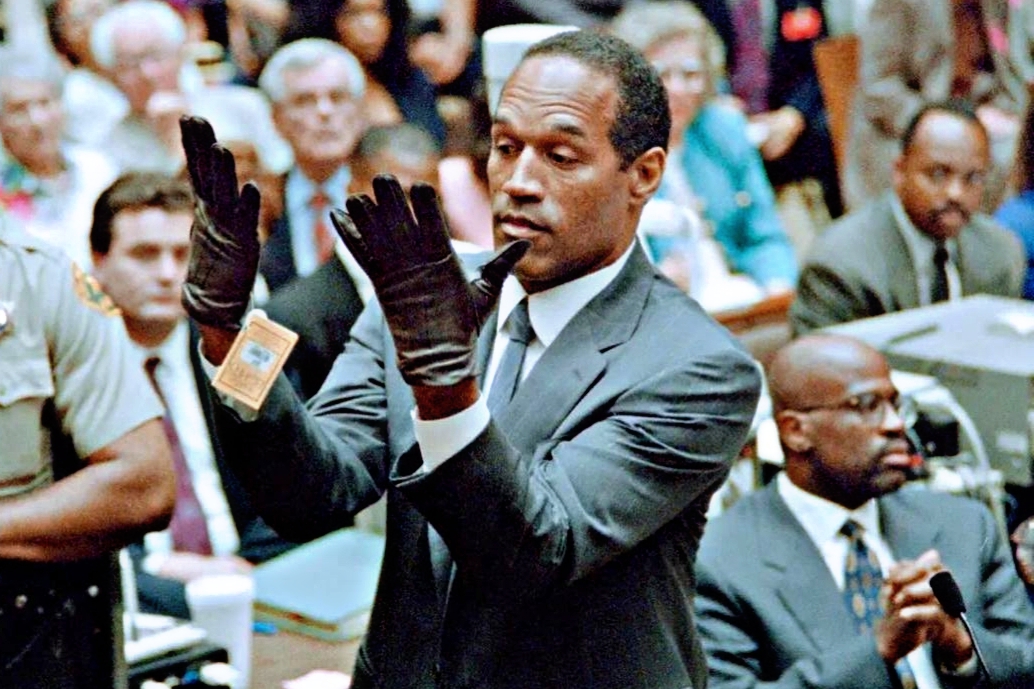Orenthal James Simpson, commonly known as O.J. Simpson, is one of the most polarizing figures in American history. Born on July 9, 1947, in San Francisco, California, Simpson’s life has been a whirlwind of athletic triumphs, public adoration, and legal battles that captivated the world. From his meteoric rise as a football superstar to his infamous criminal trials, O.J. Simpson’s story is a complex tapestry of talent, fame, and controversy.
Early Life and Athletic Prowess
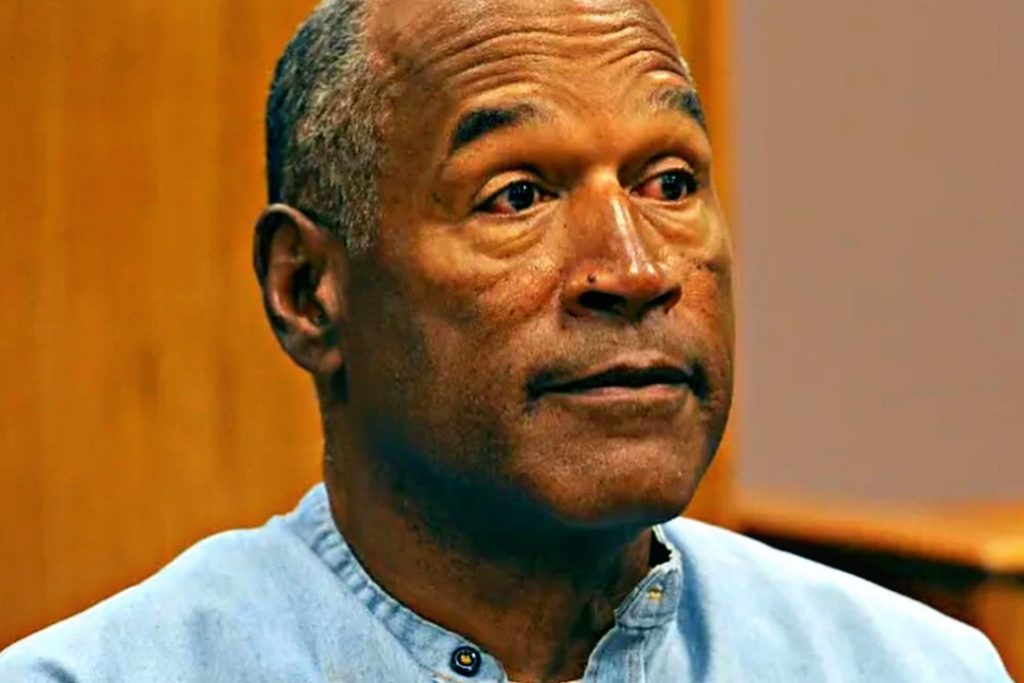
O.J. Simpson grew up in the Potrero Hill neighborhood of San Francisco. His early years were challenging, as he battled rickets and wore braces on his legs until the age of five. Despite these obstacles, Simpson’s determination and athletic ability became evident during his teenage years. At Galileo High School, he excelled in multiple sports, particularly football, which would become his ticket to stardom.
After high school, Simpson attended the City College of San Francisco, where his extraordinary talent on the football field earned him a scholarship to the University of Southern California (USC). At USC, Simpson cemented his reputation as one of the greatest running backs in college football history. In 1968, he won the prestigious Heisman Trophy, an accolade that underscored his dominance and set the stage for a professional career in the NFL.
NFL Career and Stardom
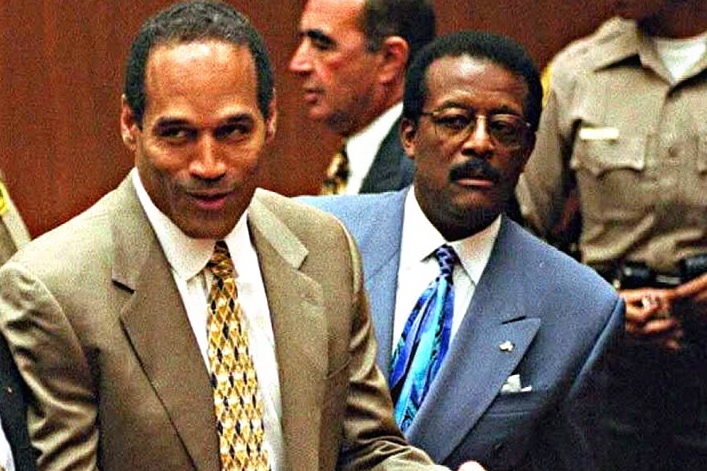
O.J. Simpson was drafted by the Buffalo Bills as the first overall pick in the 1969 NFL Draft. His professional football career was nothing short of remarkable. Known for his speed, agility, and explosive playing style, Simpson became the first player in NFL history to rush for over 2,000 yards in a single season—a feat he accomplished in 1973. His performance that year earned him the NFL Most Valuable Player (MVP) award and solidified his status as a football legend.
Simpson’s NFL career spanned 11 seasons, during which he played for the Buffalo Bills and later the San Francisco 49ers. By the time he retired in 1979, O.J. Simpson had amassed numerous accolades, including five Pro Bowl selections and an induction into the Pro Football Hall of Fame in 1985.
Transition to Hollywood and Commercial Success
Beyond football, O.J. Simpson’s charisma and charm made him a natural fit for the entertainment industry. He seamlessly transitioned into a successful acting career, starring in films such as The Naked Gun series and Capricorn One. Simpson also became a household name through his work as a sports commentator and his appearances in commercials, most notably for Hertz rental cars.
By the 1980s, O.J. Simpson had cultivated an image as a beloved public figure, admired for his accomplishments on the field and his engaging personality off it. However, this image would be shattered in the years to come.
The Nicole Brown Simpson and Ron Goldman Murders
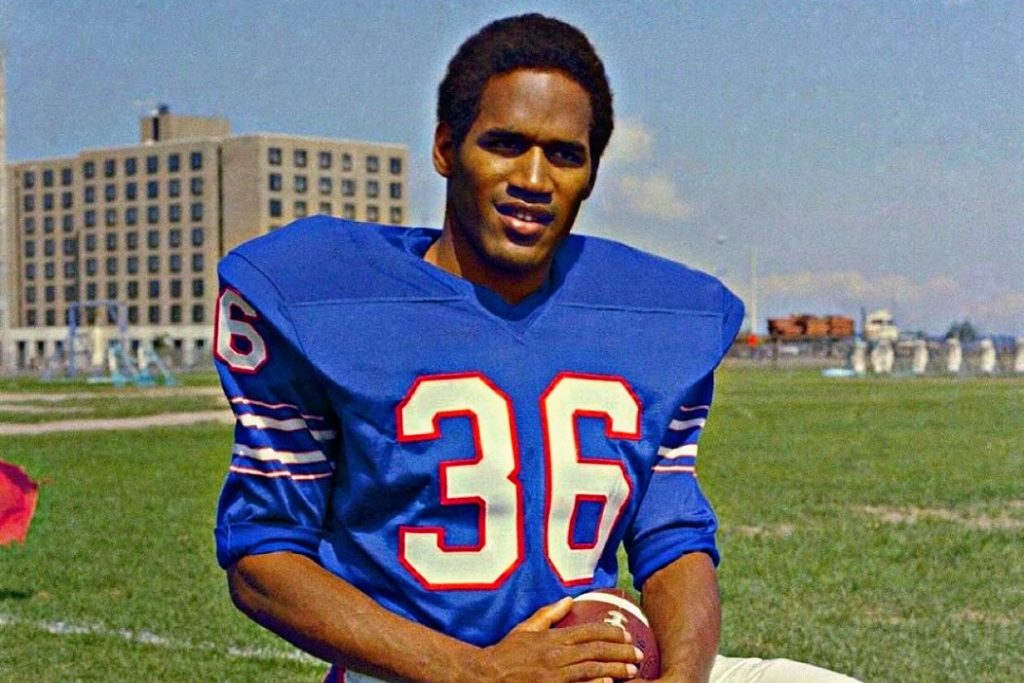
On June 12, 1994, Nicole Brown Simpson, O.J. Simpson’s ex-wife, and her friend Ron Goldman were found brutally murdered outside her home in Los Angeles. The subsequent investigation quickly turned the spotlight on Simpson as the prime suspect. What followed was one of the most sensational and widely covered criminal trials in American history.
The televised car chase on June 17, 1994, featuring Simpson in a white Ford Bronco, became an iconic moment in pop culture. With millions of viewers glued to their screens, Simpson’s eventual surrender marked the beginning of a legal saga that would dominate headlines for months.
The Trial of the Century
Dubbed “The Trial of the Century,” O.J. Simpson’s 1995 murder trial was a media circus. With a defense team led by prominent attorneys such as Johnnie Cochran, Robert Shapiro, and F. Lee Bailey, Simpson mounted a vigorous defense against the charges. The prosecution, led by Marcia Clark and Christopher Darden, presented compelling evidence, including DNA samples and a bloody glove found at the crime scene.
Despite the overwhelming evidence, the defense skillfully raised doubts about the reliability of the LAPD’s investigation and the handling of evidence. Cochran’s famous phrase, “If it doesn’t fit, you must acquit,” referring to the ill-fitting glove, became a defining moment in the trial.
On October 3, 1995, O.J. Simpson was acquitted of all charges, a verdict that deeply divided public opinion along racial and societal lines. While many celebrated the outcome as a victory against systemic racism, others viewed it as a miscarriage of justice.
Civil Trial and Financial Fallout
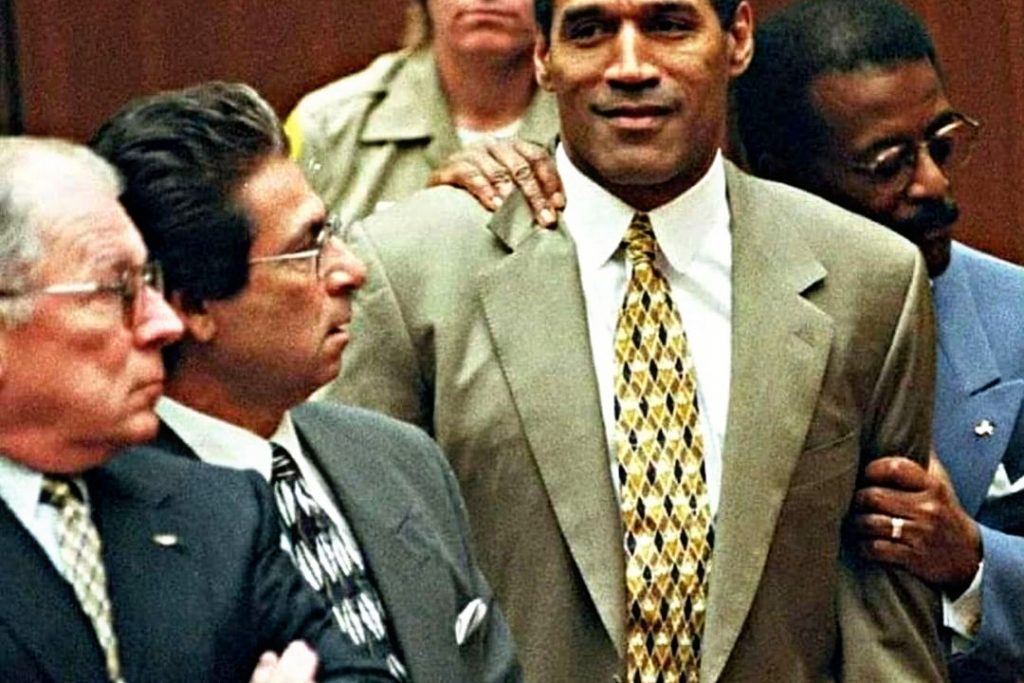
Although O.J. Simpson was acquitted in the criminal trial, he faced a civil trial in 1997. The families of Nicole Brown Simpson and Ron Goldman filed a wrongful death lawsuit against him. This time, the jury found Simpson liable for the deaths and awarded $33.5 million in damages to the plaintiffs.
The civil judgment had a significant impact on Simpson’s financial standing. His assets were seized, and his lavish lifestyle came to an end.
The Las Vegas Robbery and Imprisonment
O.J. Simpson’s legal troubles did not end with the murder trials. In 2007, he was involved in an armed robbery and kidnapping incident in Las Vegas. Claiming he was attempting to recover personal memorabilia, Simpson and a group of accomplices entered a hotel room and took items at gunpoint.
In 2008, Simpson was convicted on multiple charges and sentenced to 33 years in prison, with eligibility for parole after nine years. In 2017, he was granted parole and released from prison, once again capturing public attention.
Life After Prison
Since his release, O.J. Simpson has largely stayed out of the spotlight, though he remains active on social media. He frequently shares videos and commentary on various topics, offering a glimpse into his life post-incarceration.
While he no longer enjoys the adoration he once did, Simpson continues to fascinate the public. His ability to remain relevant, despite his controversial past, underscores the enduring complexity of his persona.
Legacy and Cultural Impact
O.J. Simpson’s life story is a cautionary tale of how fame and fortune can unravel amidst scandal and controversy. His rise from a humble background to NFL stardom is a testament to his incredible talent and determination. However, his fall from grace serves as a stark reminder of the consequences of personal and legal missteps.
The O.J. Simpson case has had a lasting impact on American culture and the legal system. It sparked debates about race, celebrity influence, and the media’s role in high-profile trials. It also highlighted the disparities in the justice system, with many arguing that Simpson’s wealth and fame afforded him advantages unavailable to the average defendant.
Conclusion
O.J. Simpson remains an enigma—a man who achieved unparalleled success yet became synonymous with scandal and infamy. His name evokes a wide range of emotions, from admiration for his athletic prowess to outrage over the controversies that have defined his life. Whether viewed as a tragic figure or a cautionary example, O.J. Simpson’s story continues to captivate and provoke reflection on the complexities of human nature and society.

